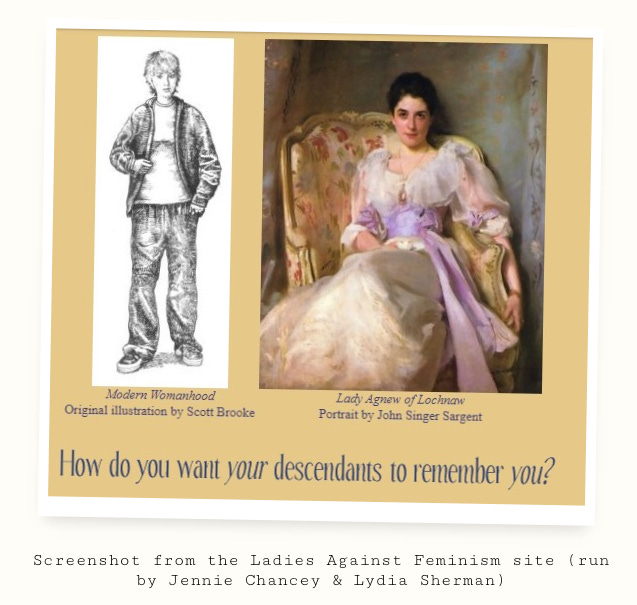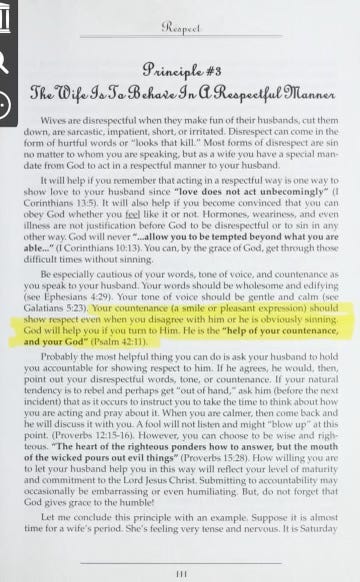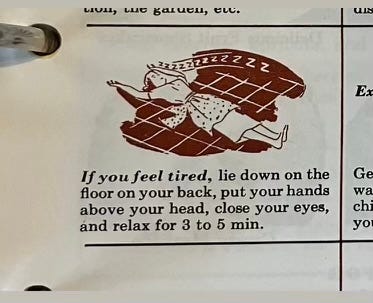The past few days, my coauthor Kelsey Kramer McGinnis has been offering insightful analysis on the Trad-wife subculture. A quick search of the hashtag will orient you to this mashup of cosplay, aspirational ideals, romanticized history, domestic work as the primary outlet for creativity, and —when mixed with authoritative spiritual language—a vintage dusty-rose-lined path to a kind of prescriptive godly womanhood.
It reminds me a great deal of the content produced by Above Rubies, Vision Forum, and other dominionist organizations of the 90s/00s, groups that I now think of as proto-influencers for the Trad-wife and Theobro influencers of today’s hyper-patriarchal circles.

What used to be passed around at homeschooling conferences or through word of mouth church groups in recent years has racked up followers through hashtag trends and muted instagram feeds, but one thing remains the same: the rhetoric invites a return to perceived simpler times, to slowing down, while also tugging on other ideals as well: natural living, homesteading, and ideas about masculinity/femininity and authority and submission. And all of this is paired with glowingly lit domestic or homesteading scenes set to effective emotive music. There’s much to be said about the ingredients here, the way an aesthetic is being sold (and whether it was ever attainable to being with), how it intersects with conversations about race and wealth and separatist movements and more, but I found myself thinking a great deal this week about what the trend reveals about peoples’ longings.
First, let me say, my intent here is not to disparage those who find something attractive in what is being pitched by these influencers. There’s a reason these accounts rack up tens of thousands of followers. Indeed, there’s a part of me that would cosplay any domestic scene from LM Montgomery’s novels on a Prince Edward Island farm in a hot minute if I could figure out a way to do it. And neither do I mean to denigrate domestic work, which can be a welcome sphere of creativity and labor. In many ways, the Trad-wife garb is really just that—a clothing style for what’s going on underneath: various prosperity gospel lifestyle promises.
It’s worn other garb in different eras: the prairie dresses of Gothard’s prime, Austen-esque gowns of purity balls, and even the “modern modest” of other communities. I also recognize many familiar themes from popular Christian parenting teaching: borrowed credibility, successful marketing, self-platformed expertise, making one’s own experience normative for everyone, guaranteed results, seminars and conferences and aspirational communities to bolster the ideals, and the constant treadmill of do-this-to-make-your-life-better. But the comfort and reassurance that you are Doing It Right, the promised security and protection if you follow prescriptive rules, comes at the high price of the freedom Christians have been granted in many areas.

It’s almost as though any internal warning signs are preemptively argued away and instead cloaked with spiritual language about contentment, dying to self, and submitting to another’s will. This, too, is nothing new. In my non-denominational church in the early 2000s, the young marrieds group was split into two groups; the men were given The Exemplary Husband and the women Martha Peace’s The Excellent Wife. A few people DMed me screenshots of Peace’s book today, and seeing the charts and the font and the endless lists of Put Off/Put On verbiage landed like a weight in my body. I was back with 22 year old earnest me, well worn copy in hand, who deeply desired to please the Lord and as a result was particularly vulnerable to people who authoritatively claiming God’s Way.
I threw the book away long ago, because—even after I came to identify ways it was based on distorted theology and legalism—I found myself almost compulsively returning to it. When circumstances felt out of my control, I’d self-declare my own kind of arbitrary new year where I’d make resolutions and get to work. I’d try harder. I’d control the things I could control, like my attitude, my ability to work hard, my scheduling and organizing domestic work and menu planning and memorizing verses. It can feel good to scrupulously organize the internal landscape of one’s heart when everything else is spiraling out of control. It took me a long time to toss that book and instead go all in on grace, and, if I’m honest, when things heat up, I still feel a pull toward rightly ordered days and the promised life-changing magic of tidying up one’s soul.
I imagine the reasons individuals are drawn to these sort of movements and teachings are probably as varied as each person, but the return to this aesthetic in Christian circles—even after many have spoken to the harms—reveals that it taps into deep-seated desires. And once you go down that path, it can be hard to exit. When the promises inevitably fail, it isn’t the influencers left picking up the pieces—it’s the individuals left left reckoning with a fractured sense of the world, relationships, self, and, given the spiritual teaching woven throughout, of God and faith. Unravelling the pattern of a once well-ordered, understandable, and authoritative world unravels so much else.
If this is you: I’m sorry. These kind of community betrayals—and sometimes our own self-betrayal—leave us with many losses and much to grieve. And often it comes with other kinds of painful experiences as well.
This week Tia Levings shared the reality of her own experiences behind the curtain of the curated aesthetic in two powerful articles: I Would Have Been a Trad Wife Influencer and What It’s Really Like to be a Tradwife. It’s important to listen to the people who attempted to live out these ideals.
It’s also important to think of the ramifications of such ideals. Because while many of today’s influencers are young wives and mothers claiming to make choices for themselves, those who are sincerely zealous will raise their children with certain expectations. When parents go all-in on this kind of ideology, religious ideals swiftly displace choices, and perceptions about The Best Way can dictate a child’s future. This can lead to girls being denied an education, courtship and arranged marriages, parental authority well into adulthood, and learned codependence…all in God’s Name.
I wrote a novel set in the stay-at-home-daughter movement, a subculture that has long haunted my imagination because of the potent combination of youthful zeal and aspirational longings mixed with a crushing theft of young women’s agency and autonomy. Background research for this book included reading archived blogs written by stay-at-home-daughters, internet forums discussing the phenomenon, the primary literature that cultivated the movement, and listening to young women who advocated for the lifestyle and to those who had left the movement. It’s a gut wrenching enterprise to read words of teens determined to choose joy, die to self, and glorify God in ways prescribed by high control religious authorities while also reading survivor stories and the accounts of many who experienced all manner of harm and abuse under the banner of such teachings.
The way distorted theology cultivates and enables abuse is one ingredient that has drawn me to the work of examining popular Christian parenting teaching. Ideas matter. And because popular Christian parenting teaching can’t neatly be parsed outside of ideas about “biblical” motherhood and fatherhood, I’m sure I’ll return to this topic in the coming months. Besides, even if I wanted to move on, the algorithm is now serving me up Trad-wife influencer content, which gives me a little jolt whenever I scroll through my feed. When I see it now, I wish I could go back and hug young twenty-two year old me and every other woman on this treadmill. Because, wow, is it a treadmill. Today, as I was crossposting to YouTube and seeing all the images again, it landed like a weight, and this old snippet from a vintage Betty Crocker cookbook came to mind.
It still makes me laugh when I see it. Back then, I thought it was quaint and old-fashioned. Now, it lands a bit differently. If you feel tired. Do I feel tired? It’s a question I’m not sure excellent wives and aspiring influencers and Good Christian Women often give themselves permission to ask. To be honest, I don’t think Betty’s 3-5 minutes is going to cut it for the treadmill kind of tired, but I do like that there’s the whisper of invitation to the apron clad figure bustling about her many tasks: If you feel tired…









It's so insidious. Because none of the "trappings" -- homeschooling, homesteading, making food -- are bad. But the legalism, the FEAR, the shame. Those are pervasive and toxic. Even after years of counseling I struggle with finding the way through the messages of the toxic soup I grew up in. I describe the experience as looking through a home's wreckage for the foundation that is sturdy enough to be built on. I had to tear most of it down before I could build something again. But I still find it difficult to find community within these groups -- I get easily spooked by homeschool co-ops etc...The trad wife influencer thing is so sneaky. Because it's hard to criticize outright. You have to dig and dig to discover that the theology underpinning it is deeply flawed and has nothing at all to do with accepting God's grace.
Marissa, I was in a conversation yesterday with someone my age in a church you know, bemoaning the damages that were done in the 70's to moms like my friend and myself. The lies continue to be perpretrated (sp) and I'm so glad you're writing about this!
(Tia Leving's name was running through my head while I was reading this; we met in a writer's group on FB when she first pitched her book. A humdinger.)
...
You are wise beyond your years, friend; I'm grateful for your voice.